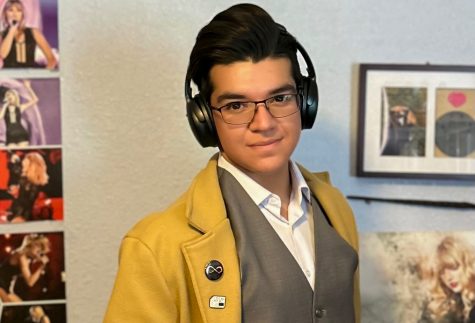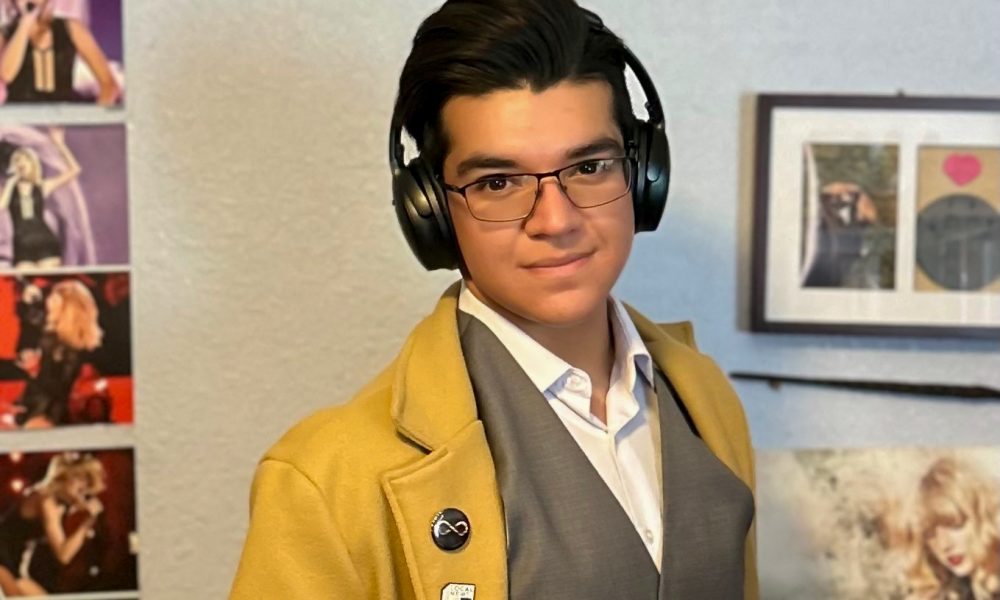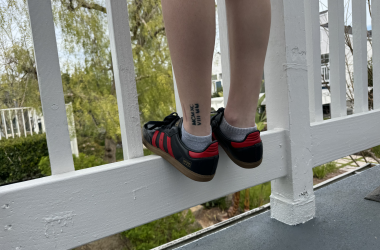Accepting that I’m autistic over the last year was challenging.
I first had to understand that almost every stereotype I knew about autistic people was wrong. Often in the media or in Autism Speaks commercials we are portrayed as people who struggle with communication, have high support needs, minimal facial expression and lack empathy.
As a journalist, my career depends on my ability to talk and communicate with others, often requiring me to be in overstimulating situations, which made me initially in complete denial about the possibility of being autistic.
By listening to other autistic people and reflecting on my life, I found which behaviors were actually signs that I’m autistic.
As a kid, I was different from my peers in every way, from my special interests to the music that I liked and the clothes that I wore.
I had a habit of running my knuckle against my lip to stim or self-regulate.
My classmates would mock and tease me constantly.
I was always more comfortable in a collared shirt rather than a t-shirt, so my peers would often fling food and other messy objects toward me. Since I had a reaction to smells and acute senses, other students would spritz cologne or body spray at me during class or in the hallway.
Every day my classmates and even adults would say, “Nobody likes you, Vincent,” and “You look stuck-up; that’s why nobody talks to you.”
Growing up, we were told being different was a strength, but for me, it didn’t feel like a strength. Instead, I felt like I was being punished for being myself.
“Why am I different?”
“He can’t be autistic or have ADHD,” my doctor told my parents. “He’s too smart!”
You can have a 3.8 GPA and be autistic; I am living proof.
I did try to mask and act neurotypical by studying and mimicking behaviors deemed “acceptable,” but it never worked for long. I would trust people and make friends, start being myself and then get rejected by them.
At some point, I stopped trying to be accepted by others. Clearly, the “just be yourself, and people will like you” method did not apply to me. Instead, I believed I was the problem.
Starting at Long Beach State, I masked by keeping to myself, worried that the pattern of trust and subsequent rejection would continue.
I received a happy surprise that this mask worked. If I kept to myself, engaged in minimal conversation and listened instead of sharing what I had to say, people would like me.
I was accepted, but it was not me that my friends were accepting.
Masking was exhausting as I fought the urge to stim, talk about my special interests and wear clothes that I found comfortable.
There were a special few I felt safe unmasking around, and those people became some of my closest friends.

After receiving a formal autism diagnosis, I was relieved. I finally understood why I was different from everyone else and why I am the way that I am.
I began to trust people and make friends, and I shared my diagnosis story with those people that I trusted.
For the most part, I received overwhelming acceptance, but people I thought I could trust turned on me.
After being fully out as autistic for a semester and finding comfort in being myself, these so-called friends would tell me, “We preferred you last semester.”
I felt defeated and so confused. The people I trusted and the first people I felt comfortable being around as true myself were the same people telling me to stop, telling me to cover up my autistic traits.
It was too late, though. My brain was finally given permission to embrace its difference and unmask. After that, there was no going back.
I felt safe in front of these people. Once when I became overstimulated and overwhelmed with anxiety, I had a meltdown while they were in the same room.
Usually, I can avoid getting overstimulated by using grounding techniques, going for a walk in a quiet environment, or using sensory accommodations like my noise-canceling headphones or a fidget tool.
However, there are some situations where you cannot leave and don’t have access to accommodations. When autistic people do not have access to their accommodations or sensory needs, it becomes too much, and we could go into a meltdown.
I felt like I was paralyzed, and I shut down. Talking became impossible, and I cried silently. My close friends were there to help and support me, but I felt judged by others.
A week after my meltdown, a small clique within my friends decided I was unsafe to be around, spreading rumors that I was dangerous.
“Autistic men tend to be violent,” one of them said.
I was shattered. I felt like I wasn’t accepted for being different as a neurotypical, and I wasn’t accepted as an autistic person either.
I still have my close friends who have accepted me and my differences, and I cherish them deeply. These were mostly the people who accepted me for my differences before being aware I’m autistic.
The same people who made me safe to stim in front of them, talk about my special interest, and understood and accommodated my sensory needs became the people I value most.
I ask everyone to make a promise to themselves that when they meet a person who is different or doesn’t quite fit in, to be kind to them and accept them for who they are.
We are all people with feelings, and who knows? You may have more in common with that person than you think!
Differences are good as long as you are not hurting anyone. The world needs different minds. We need people with brains that function differently, brains that have a certain spark.
Being autistic is not a superpower; sometimes, it’s a struggle, but I would not change myself for the world. On the days that I find myself seeing the details that others don’t or feeling excited by an everyday occurrence, I like it a lot.
I have grown to accept myself for my differences, and I believe others should be accepted for theirs too.
There are resources for neurodivergent or disabled students at CSULB, such as the Bob Murphy Access Center, to request accommodations in class or Counseling and Psychological Services for accessible therapy.




